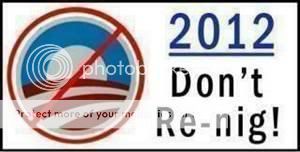Well, of course I believe that Ford pardoned Nixon for other reasons than the good of the country. I did read the speech just now. Let's forget who wrote that and why and whether it's true or not and take it as fact. Do you agree with the concept, that it would do more damage to the country, and that a President could not get a fair trial? Or is this more like a historical perspective?
Honestly, this is something I have problems faulting Obama on morally, because the establishment of the no-fly zone does seem to he a humanitarian effort to protect innocent people from mass murderer with an army at his disposal. But, it's really a problem that he's doing something he called unconstitutional when Bush did it.
I talked to a friend in Serbia and there is strong support for Libya there.
From a historical and present day perspective I do not believe that a president could receive a fair trial. As it is from a historical perspective we can see that Andrew Johnson was almost impeached for political reasons (but saved by one vote in his defense so that the motion would not reach the required 2/3 to remove him from office).
I have few things to say and I will be a little bit "all over the place" so please give me some leeway when you read the answer.
As far as putting a President on trial, that is a question that can be split as to what the 'crime' is that we are talking about. For example if we are talking about a trial where the President is charged with shooting his wife or stealing a car or a drunken assault and fistfight in the west wing where the secretary of agriculture is pummeled with a marble bust of Washington then we are talking about a trial that reflects on the personal. We are talking about a trial that judges the rights and wrongs of the man and not the President as an institution. I believe that the President as a man should and would be held accountable.
I have different answer though where it concerns the office of President as an institution. I believe that putting a President on trial for actions that he took as president concerning areas of the expansion of executive power are very tricky waters to tread. It is not a question of legality but a political question over constitutional interpretation, political ideology and the necessity of the time period. In retrospect we may fault FDR for committing unconstitutional acts with his banking holiday or the creation of some of his programs. (The TVA comes to mind.) However, FDR defines it best in his inaugural address where he asks Congress to allow the office of President to assume a more powerful role. FDR literally says
But in the event that the Congress shall fail to take one of these two courses, and in the event that the national emergency is still critical, I shall not evade the clear course of duty that will then confront me. I shall ask the Congress for the one remaining instrument to meet the crisis — broad Executive power to wage a war against the emergency, as great as the power that would be given to me if we were in fact invaded by a foreign foe.
And Congress let him have it. Did FDR commit unconstitutional acts. Many would say 'yes.' Would we put him on trial today? Who knows? Today we celebrate his actions and history ranks him highly as an effective President.
Schlesinger v. Holtzman tried to challenge the power of the President to wage war without the consent of Congress. However the courts found that it was not a constitutional issue but a political one. Basically saying that Obama is defending the nation as he sees fit. Bush defended the nation's interests as he saw fit and every President before them all the way back to Washington utilized the military as they saw fit.
I do not believe that Nixon would have ever received a fair trial and this belief is the exception to the other's that I have concerning putting a President on trial. The view of Nixon (at least to me) is shaped by the time period. The turbulence of the 1960's and early 70's would have never allowed the most visible figure of national authority to receive a fair trial.
I have a lot of things going on right now so I will check back and answer or expand on anything you bring up but give me a couple of days. I am not ignoring but otherwise sidetracked.


